 W
WAnika the Warrior is a Bogatyr, a knight errant character of Russian fairy tales. According to a "universally known religious ballad", he was a violent and sacrilegious man who set out to destroy the Holy Sepulchre in Jerusalem, but was stopped by the half-beast Wonder. Anika challenges Wonder to a duel, but is immediately overcome because Wonder is Death in disguise. Though he begs for more time and attempts to bribe Death, no mercy is given. Proverbially, an "Anika the Warrior" is one engaged in something as hopeless as a fight against death. He appears in the folk plays Tsar Maximilian and King Herod, and is mentioned in Maxim Gorky's Childhood. Its plot is loosely based on the Byzantine epic about Digenes Akritas.
 W
WApemantus is a character in the play Timon of Athens by William Shakespeare. He is a cynical and misanthropic philosopher.
 W
WAn archenemy is the main enemy of someone. In fiction, it is a character who is the hero's most prominent and most-known enemy.
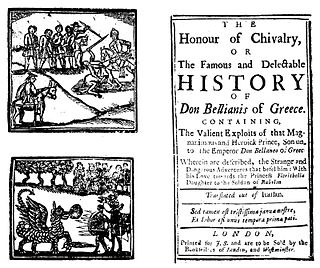 W
WBelianís of Greece is the eponymous hero of a Spanish chivalric romance novel, The honour of chivalry, following in the footsteps of the influential Amadis de Gaula. An English abridgement of this novel was published in 1673. It is best known today because it was one of the books spared during the expurgation of Don Quixote's library in Chapter 6 of Part I of Don Quixote.
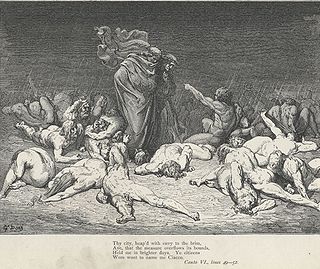 W
WCiacco is one of the characters in the Divine Comedy by Dante Alighieri that was not yet well defined by historians. This is how he presents himself to Dante when he is in Hell:
 W
WCiampolo is the accepted name of a character in Dante's Divine Comedy.
 W
WCostard is a comic figure in the play Love's Labour's Lost by William Shakespeare. A country bumpkin, he is arrested in the first scene for flouting the king's proclamation that all men of the court avoid the company of women for three years. While in custody, the men of the court use him to further their own romantic endeavors. By sending love notes to the wrong women and blurting out secrets, Costard makes fools of the royal court. Along with Moth the page and Jaquenetta, a country wench, Costard pokes fun at the upper-class. While mocking a pedantic schoolmaster, Costard uses the word honorificabilitudinitatibus, the longest word by far from any of Shakespeare's works.
 W
WEdward Ferrars is a fictional character in Jane Austen's 1811 novel Sense and Sensibility. He is the elder of Fanny Dashwood's two brothers and forms an attachment to Elinor Dashwood.
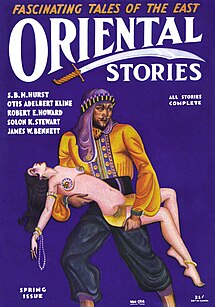 W
WCormac Fitzgeoffrey is a fictional character created by Robert E. Howard. He is a half-Norman, half-Gael Knight who is taking part in the Third Crusade. Howard wrote two short stories featuring the character and a synopsis that was later completed by another author. Although Howard was most famous for his fantasy fiction, especially Conan the Barbarian, the Cormac stories have for the majority a purely historical setting, albeit the second one involves Lovecraftian elements.
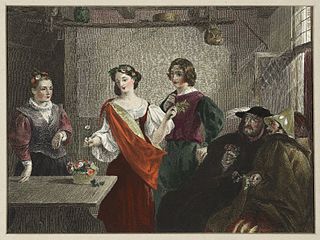 W
WFlorizel is a fictional character in Shakespeare's The Winter's Tale.
 W
WFrancis Flute is a character in William Shakespeare's A Midsummer Night's Dream. His occupation is a bellows-mender. He is forced to play the female role of Thisbe in "Pyramus and Thisbe", a play-within-the-play which is performed for Theseus' marriage celebration.
 W
WThe girl next door is a young female stock character who is often used in romantic stories. She is so named because she often lives next door to the protagonist or is a childhood friend. They start out with a mutual friendship that later often develops into romantic attraction.
 W
WHabinnas is one of the guests at Trimalchio's Feast in the Satyricon of Petronius Arbiter. He is described as a stonemason, who has designed the luxurious tomb that Trimalchio shows off to his guests, and like Trimalchio he is a sevir. It has been suggested that the name is Semitic. His entry into the feast has been seen as a parody of that of Alcibiades in the Symposium of Plato.
 W
WHarshabardhan and Gobardhan (Bengali: গোবর্ধন are humorous fictional characters in Bengali literature created by Shibram Chakraborty. Harshabardhan along with his younger brother Gobardhan, his wife, and the author Shibram are the subject of a number of satirical short stories. A characteristic of these stories is acerbic wit, play on words, and a characteristic goodnaturedness on the part of the characters. Harshabardhan is a successful black-marketeer dealing in timber who was born in Tezpur, Assam, migrates and lives in Ranaghat, West Bengal. Often to hide his ignorance on day-to-day matters, he comes up with outlandish explanations to impress his devoted younger brother and wife.
 W
WThe Host is a character who plays a key role in and throughout Geoffrey Chaucer's The Canterbury Tales. He is the owner of the Tabard Inn in London, where the pilgrimage begins and he agrees to travel on the pilgrimage, and promises to judge both the tales the pilgrims tell, and disputes among the pilgrims. He discusses his marriage to his absent wife, Goodelief when commenting on The Tale of Melibee with its message of patience. The Host says Goodelief is herself extremely impatient and speedy in urging him to violent revenge. Her name Goodelief may be a real name or just meaning, perhaps ironically, good dear one.
 W
WHygd, introduced in line 1925 of the poem Beowulf, is the wife of King Hygelac of Geatland. She is the daughter of Hæreth.
 W
WKing Leontes is a fictional character in Shakespeare's play The Winter's Tale. He is the father of Mamillius and husband to Queen Hermione. He becomes obsessed with the belief that his wife has been having an affair with Polixenes, his childhood friend and King of Bohemia. Because of this, he tries to have his friend poisoned, has his wife imprisoned, and orders his infant daughter to be cast out. The daughter, Perdita, survives nonetheless when she is discovered in her basket on the coast of Bohemia by shepherds who adopt and raise her. His young son dies of grief at his mother's plight, and Hermione faints on hearing the news and is reported dead. Leontes comes to understand his faults, and is filled with remorse for his ill-treatment of his Queen. At the end of the play, he is reunited with daughter and his wife, who returns from death in the play's mysterious finale.
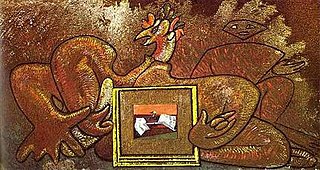 W
WLoplop, or more formally, Loplop, Father Superior of the Birds, is the name of a birdlike character that was an alter ego of the Dada-Surrealist artist Max Ernst. Ernst had a ongoing fascination with birds, which often appear in his work. Loplop functioned as a familiar animal. William Rubin wrote of Ernst "Among his more successful works of the thirties are a series begun in 1930 around the theme of his alter ego, Loplop, Superior of the Birds." Loplop is an iconic image of surrealist art, the painting Loplop Introduces Loplop (1930) appears on the front cover of the Gaëtan Picon's book Surrealist and Surrealism 1919-1939, and the drawing and collage Loplop Presents (1932) was used as the frontispiece of Patrick Waldberg's book Surrealism.
 W
WLysander is a fictional character in William Shakespeare's play A Midsummer Night's Dream.
 W
WMalvina is the bride or lover of Oscar in the Ossian cycle of James Macpherson.
 W
WMaria is a fictional character in the play Twelfth Night by William Shakespeare. She is a servant in Olivia's household. Maria is shown to have a friendly relationship with Sir Toby Belch, and exhibits a witty attitude. Maria also forges a love letter to Malvolio which results in Malvolio being confined to a dark room.
 W
WNesace is one of the more prominent characters featured in Edgar Allan Poe's early epic poem Al Aaraaf, which came out in 1829 in the poetry anthology Al Aaraaf, Tamerlane and Minor Poems. Together with Tamerlane, Al Aaraaf is Poe's most extensive poem. It received mostly negative reviews for its complexity, obscure references, and odd structure.
 W
WOrlando is a fictional character and one of the male leads in the comedy As You Like It (1599/1600) by William Shakespeare.
 W
WOrochimaru (大蛇丸), featured in the Japanese folktale Jiraiya Gōketsu Monogatari, is the archenemy of the ninja Jiraiya. He was once named Yashagorō (夜叉五郎) and was one of Jiraiya's followers but was overtaken by serpent magic. Having changed his name to Orochimaru, he gained the ability to turn himself into a giant serpent. He kissed Jiraiya and Tsunade the slug princess and defeated them with his venom, only for another follower to save the couple's lives afterwards. "The story, first recorded in 1806, was adapted into a mid-19th-century serialized novel and a kabuki drama, based on the first 10 installments, by Kawatake Mokuami, in 1852. In the 20th-century, the story was adapted in several films, in video games, and in a manga."
 W
WPăcală is a fictional character in Romanian folklore, literature and humor. An irreverent young man, seemingly a peasant, he reserves contempt and irony for the village authorities, but often plays the fool. Several derivative works codify the various versions of Păcală anecdotes. Examples include: Pâcală, by Ion Creangă; Păcală în satul lui by Ioan Slavici; Isprăvile lui Păcală by Petre Dulfu; and Întâmplările lui Păcală, part of Legende sau basmele românilor.
 W
WPerdita is one of the heroines of William Shakespeare's play The Winter's Tale. She is the daughter of Leontes, King of Sicilia, and his wife Hermione.
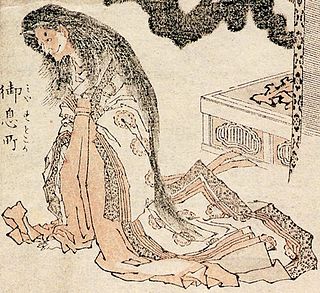 W
WLady Rokujō is a fictional character in The Tale of Genji. She is the widow of Prince Zembo and a longtime mistress of Genji. She takes the name of her residence, which was located on the Sixth Street (Rokujō) of the capital city Heian-kyō, as an alias. She has great pride, and her jealousy is so strong that subconsciously her ikiryō kills Yugao and Lady Aoi, and attacks Murasaki.
 W
WThe Great Rumpus Cat is a fictional character from T.S. Eliot's 1939 book Old Possum's Book of Practical Cats and in Andrew Lloyd Webber's 1981 musical, Cats.
 W
WShepherd of Salisbury Plain (1795) is the name of the hero, a shepherd of the name of Saunders, in a tract written by Hannah More, characterised by homely wisdom and simple piety. It was satirised, renamed The Washerwoman of Finchley Common, by William Thackeray in his novel Vanity Fair.
 W
WTom Snout is a character in William Shakespeare's A Midsummer Night's Dream. He is a tinker, and one of the "mechanicals" of Athens, amateur players in Pyramus and Thisbe, a play within the play.
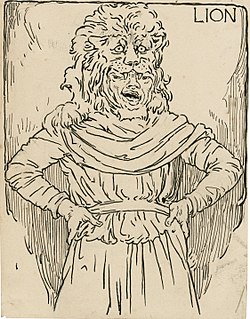 W
WSnug is a minor character from William Shakespeare's play A Midsummer Night's Dream. He is a joiner who comes from Athens who is hired by Peter Quince to play the part of the lion in Pyramus and Thisbe. When he is first assigned the part, he is afraid it may take him a while to finally remember his lines. Bottom offers to play the part of the lion, but he is rejected by Quince, who worries that his loud and ferocious roar in the play will frighten the ladies of power in the audience and get Quince and all his actors hanged. In the end, the lion's part is revised to explain that he is in fact not a lion and means the audience no harm.
 W
WSvyatogor is a mythical bogatyr (knight/hero) in ancient Russian bylinas. His name derives from the words for "sacred mountain". Svyatogor's tale, Ilya Muromets and Svyatogor, forms a part of the Ilya Muromets cycle. According to the epic, the mother-Earth cannot support the weight of Svyatogor, but he can not overcome the "pull of the earth" contained in the bag: when he tries to lift the bag, his feet sink into the ground. Svyatogor's father is "dark", he is blind - a sign of coming from another world.
 W
WTalthybius was herald and friend to Agamemnon in the Trojan War.
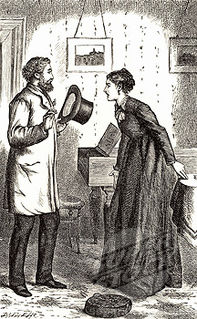 W
WRachel Verinder is a character in Wilkie Collins' 1868 novel The Moonstone. Despite being the heroine, the story is never related from her viewpoint, as it is in turn from the other main protagonists, leaving her character always seen from the outside.
 W
WYang Paifeng (楊排風) is a fictional character from the Generals of the Yang Family legends. She is a maid in the Tianbo House, home to the Yang family. She learned martial arts by imitating the moves practiced by Yang family members, using a metal rod that she was supposed to use to tend the kitchen fire. It is implied that she is not related to the family by blood, and took on the surname Yang because she was an orphan.